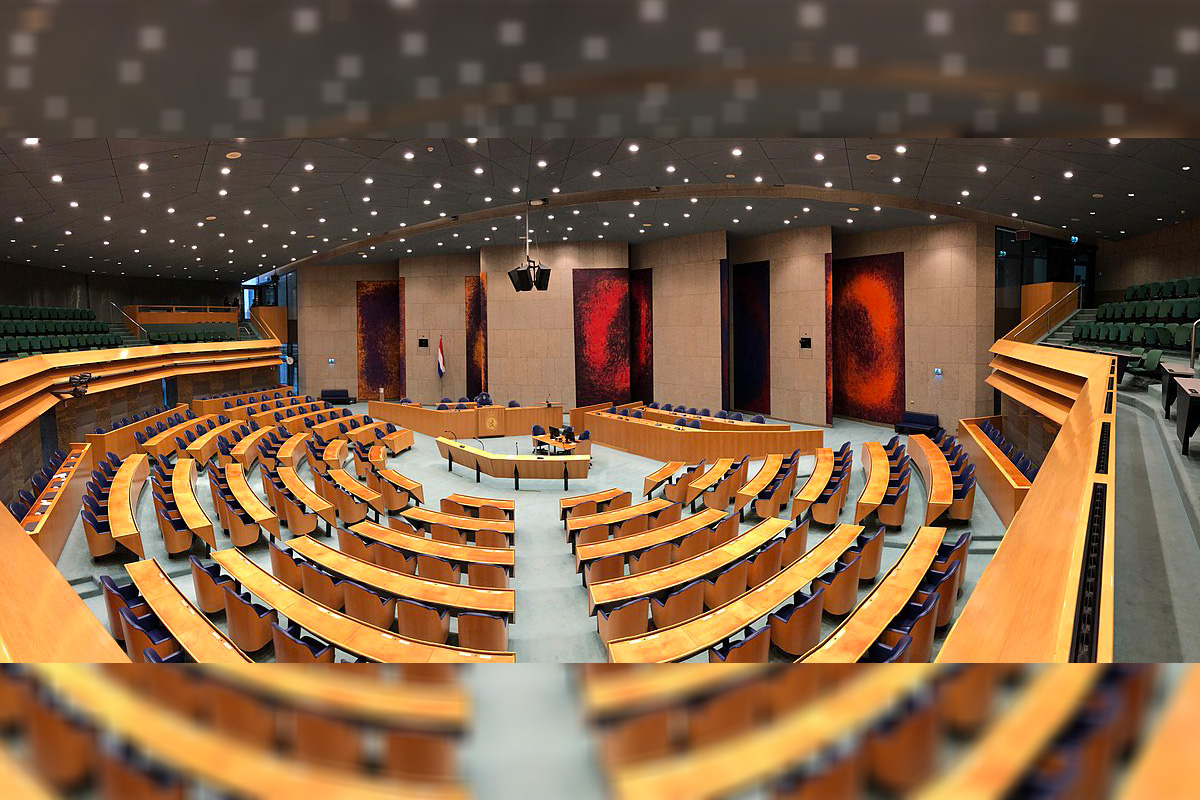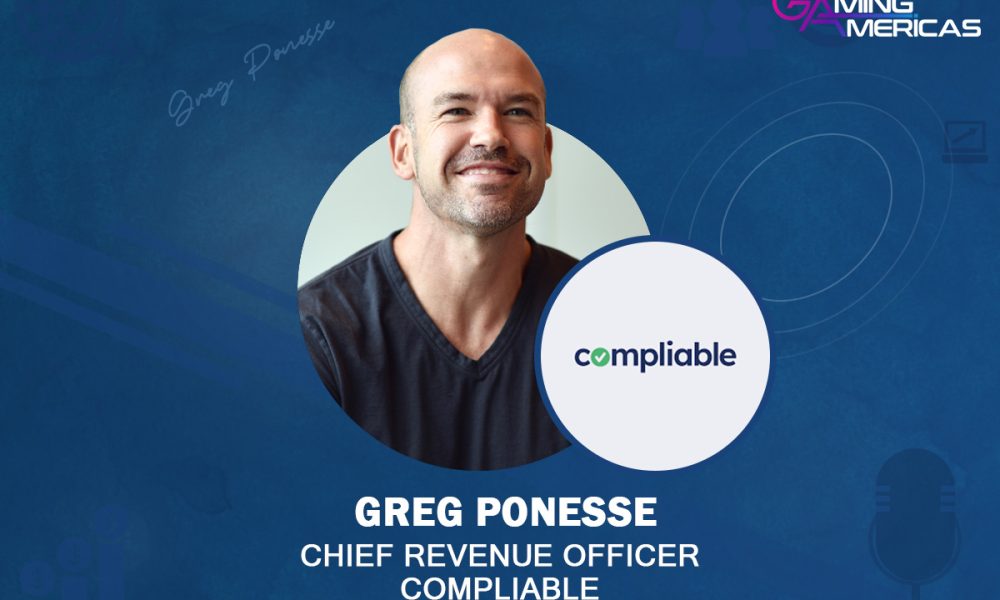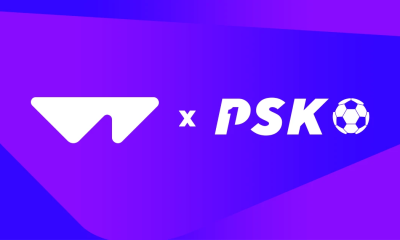Compliance Updates
Netherlands: House of Representatives Wants a Ban on Untargeted Advertising Online Games of Chance

A large majority of the House of Representatives wants a ban on untargeted advertising for online games of chance.
Outgoing minister Sander Dekker (VVD) was against the motion and indicated that it is too early for that. According to the petitioners, since the opening of the online gambling market on October 1, 2021, there has been a large increase in the number of hours people spend on online gambling sites. According to the members of parliament, consumers are bombarded in all kinds of media with a large amount of untargeted advertisements for remote games of chance.
The petitioners further argue that encouraging participation in games of chance was not the aim of legalising online games of chance, but is now in fact the result. According to the motion, this could lead to potentially major social consequences, such as financial problems and addiction problems. The large number of advertisements is disproportionate to the aim of the Remote Gambling Act, which is to realise channelisation into a legal offer.
In addition to the ban on untargeted gambling advertising, a motion has also been passed asking the government to look at personalised advertisements after visiting gambling websites, while considering a ban on personalised advertisements. The PvdA and the SP have considered that after visiting online gambling websites, people will receive online advertisements for quick credits and loans at sky-high interest rates.
Another motion asks the government to lay down in government regulations that the window times for advertising (currently after 9 p.m.) will also apply online. According to the motion submitted by the ChristenUnie, SP and CDA, the Advertising Code for Online Gaming does regulate window times for online advertising, but enforcement is cumbersome and always only after complaints.
Powered by WPeMatico
Arkansas
North Carolina Lawmaker to Introduce Bill to End College Player Prop Bets

North Carolina legislator intends to introduce legislation to ban college player prop bets, according to a staff member.
North Carolina State Representative Marcia Morey, D-Durham, a former Olympic swimmer, will submit a bill by the bill filing deadline on Thursday to ban these bets, Hannah Smith, Administrative Assistant, told Gambling.com on Monday.
The North Carolina Legislature began meeting in Raleigh on April 24 with the session set to end on July 31.
Recently, NCAA President Charlie Baker, a former Massachusetts governor, called upon states to ban college player prop bets, which is short for proposition bets. Baker said these bets, based on an athlete’s individual performance such as the over/under on the number of rebounds the player might record, could undermine the integrity of games and lead to harassment of players.
Former North Carolina Tar Heel star Armando Bacot is among athletes who have expressed concern about harassment. Bacot said he heard from fans angry that he didn’t get enough rebounds in an NCAA tournament game against Michigan State – a game the Tar Heels won.
College Prop Bets Allowed in Some States
Some states already ban these bets, while others including Louisiana, intend to impose a ban this summer before the college and pro football seasons begin.
In other states, the proposed ban has met with resistance.
During a recent interview on The Edge, Arkansas casino executive Carlton Saffa told Gambling.com a ban would drive bettors to unregulated offshore sportsbooks or illegal bookies. He said a better solution is to keep those bets legal in regulated markets where irregularities can be spotted.
“Sunshine is the best disinfectant,” Saffa, the Chief Marketing Officer for the Saracen Casino Resort in Pine Bluff, Arkansas, said.
College player prop bets remain legal in Arkansas.
In North Carolina, where statewide mobile sports betting became legal in March, State Representative Jason Saine, R-Lincoln, said in a story on the WNCN-TV website that a college player prop ban is ‘a solution in search of a problem’. If athletes are being harassed, he said, campus police should crack down on those making the threats and make an example of them. A ban won’t stop the problem, Saine said.
“If we ended (player prop bets) tomorrow, this kind of behavior would still continue with fanatical people,” Saine said. “Follow rules of society, you don’t threaten anybody, or you shouldn’t be. And, that’s kind of my take on it. I don’t think we need a whole new set of rules to pursue something like that.”
Morey, the lawmaker proposing the ban, said people are ‘forgetting about the individuals who are actually playing the game and having the pressure on them’.
“Let’s give them a break,” she said.
Asia
Uzbekistan Legalises Online Betting and Lotteries

President of Uzbekistan Shavkat Mirziyoyev has signed a decree on April 19 titled “On Measures to Improve the Regulation of the Organization and Conduct of Lotteries and Risk-Based Games in the Republic of Uzbekistan”. The document abolishes the ban starting from January 1, 2025, and introduces a legal framework for the organisation of risk-based games online and betting activities.
The issue of legalising betting activities has been a long-standing topic in Uzbekistan. In December 2019, the president signed a decree to legalise bookmakers, but this decision was revised in April 2022. In April 2023, the head of state instructed the development of a regulatory framework for betting activities.
The National Agency for Advanced Projects (NAAP), the authorised state body for regulating and licensing activities in this sector, provided insights on the necessity of introducing state regulation in the gambling sector in Uzbekistan. The agency emphasised the need to prevent illegal gambling businesses, protect players’ rights and generate additional income for the state budget.
The president’s decree aims to introduce advanced foreign experience and modern technologies in regulating the organisation of risk-based games and lotteries to increase investment attractiveness, tourist potential and attract additional funds to the country.
The measures outlined in the decree include the creation of legal foundations for the legalisation of activities related to risk-based games online, betting activities, and lotteries, implementation of mechanisms to protect citizens’ rights and interests, prevention of gambling addiction and the generation of additional state budget revenue.
Starting from January 1, 2025, a taxation system will be introduced for license holders, where organisers of online games, betting activities and lotteries will pay a turnover tax. This system aims to prevent the concealment of taxable revenue and is expected to generate additional tax revenues for the state budget.
Overall, the implementation of the decree is intended to establish a reliable foundation for the legal regulation of activities related to organising risk-based games online, betting activities and lotteries in Uzbekistan, protect citizens’ interests, combat gambling addiction and provide additional sources of income for the state budget.
The post Uzbekistan Legalises Online Betting and Lotteries appeared first on European Gaming Industry News.
Compliable
Reputation matters – the importance of supplier licensing

More and more jurisdictions are introducing licensing for B2B providers in an attempt to boost regulatory oversight and restrict black market activity with Sweden and Denmark recent examples. In this piece, we talk to Greg Ponesse, Chief Revenue Officer at Compliable, about how the increased compliance burden can favour suppliers’ standing in the iGaming ecosystem.
Have you seen a shift in attitudes from suppliers to only provide products in regulated markets?
We have seen that suppliers that have traditionally taken a .com approach are starting to move towards being licensed to secure additional revenue and more customers but also to improve their overall reputation and standing. The perception of brand integrity plays a big part of the decision-making process because some operator partners might be reluctant to work with suppliers if they have a mainly grey-market approach.
In the US, supplier licensing has always been the norm, so where we are seeing attitudes changing is primarily with European suppliers. Although most suppliers might have a few licenses that they need to manage in key markets, they are now better understanding the importance of being seen as fully compliant across the board as regulation changes and operators are looking for trusted partners.
Some of these brands are massive enterprises who are now trying to get a handle on how to manage all their licenses across multiple regions, and we have seen an increased interest in our software to support that.
What has been the driving force for this – regulator pressure or business strategy?
It’s a little bit of both. Regulator pressure is definitely a big one as gambling becomes more ubiquitous and mainstream. It’s the responsibility of the government to provide structure and regulation to ensure safety for consumers and many are starting to realize that suppliers play an equally important role in that as operators. We have recently seen examples of locally licensed suppliers being fined by regulators for offering their products to unlicensed operators, so providers need to be on the ball to ensure their reputation stays intact.
That said, the grey market suppliers up to this point have stayed in grey markets because that’s what was available to them. Now you’re seeing new markets opening up like North America, which has been huge, where all states require suppliers to be licensed. These grey market players that have previously focused on Europe now see that there’s revenue over there to be gained, so they need to pull up their socks and play the game.
As a business strategy, suppliers can only remain in black markets for so long, avoiding paying taxes and declaring revenue. In a competitive marketplace, suppliers can definitely benefit from being more established and having numerous licenses. Operators might be wary to work with companies that don’t take compliance seriously so being able to show that you have X number of licenses and that you have infrastructure in place shows that you’re serious, and that you know what you’re doing. It kind of sets the table for you to have a soft landing and to be able to begin those discussions with potential partners.
A sole focus on regulated markets would suggest a negative impact on profits so what benefits do suppliers see from being licensed?
If the train is only going in one direction, you eventually have to hop on it. Moving away from grey markets will inevitably have a negative impact on profits but you then have to look at where you can find additional revenue. If you are a licensed supplier, it does allow you to work with the big local operators. You have to decide on whether you can make more money as a grey-market supplier or by going into markets being licensed and making the most of what that offers.
Do you expect more jurisdictions will introduce B2B licensing going forward?
Yes, for sure. Gambling is ubiquitous now and governments recognise that it’s a great revenue generator for them and it also helps with ensuring responsible gambling. With licensing, you provide a framework, infrastructure, and environment that is safe, and it ensures that everyone is on a level playing field. That needs to include all different sides of the industry such as operators, suppliers, affiliates etc. If everyone in the ecosystem follows the rules, it will be a better place for all.
What are the big challenges that suppliers face when it comes to licensing in 2024 and beyond?
Your licensing strategy, so basically, where you are going to go get licensed. This process takes time and resources, and you want to make sure you are prepared before you start talking with operators. They will want to know, just like as with any other vendor, if you are licensed as a supplier.
If we use the US as an example, there is no shortage of suppliers that want to partner with the available operators, so you need to know who you want to work with and where, and then you have to make sure you sort those applications properly. That is all about getting the right advice or using software because if you fail the process, you will end up at the back of the queue and your go-to market strategy will be delayed.
What, if any, are the key differences between licensing in the US and regulated markets in Europe and other regions around the world?
For starters, every state in the US acts as if it is its own country and the licensing process is very complex and rigorous. In Europe, it was initially somewhat more relaxed. You got your Malta licence, and that was then good for all countries in Europe. We’re now seeing a bit of backtracking, with more and more countries getting tougher on rules and regulation.
Increased supervision, with regulators having more oversight, means there is no hiding and I think that is what we’re moving towards on a global scale.
I do believe that most suppliers and operators prefer a regulated market because it separates proper companies from the bad ones. If I was a large operator or supplier that invested time and money into licensing and establishing a compliance team, I would feel good about that because there are so many companies that can’t do it. There’s this element of pay to play, so to speak, in order to really maximize your profits in a region.
-

 Endorphina Press Releases7 days ago
Endorphina Press Releases7 days agoEndorphina releases its newest title – Jolly Queen!
-

 Balkans6 days ago
Balkans6 days agoWazdan marks Croatian market entry with PSK partnership
-

 Africa6 days ago
Africa6 days agoHub88 partners with LiveGames to enhance content offering
-

 Latest News6 days ago
Latest News6 days agoF1 Star Joins SOFTSWISS as LatAm Non-Executive Director: Key Highlights
-

 Bryan deLugo6 days ago
Bryan deLugo6 days agoSacramento Kings and Red Hawk Resort + Casino to Unveil Themed $1 Slots
-

 Alex Lieblong6 days ago
Alex Lieblong6 days agoArkansas Casino Seeks iGaming Approval
-

 Latest News6 days ago
Latest News6 days agoContinent 8 Technologies set to debut in Brazil: Latin America’s next iGaming frontier
-

 Australia5 days ago
Australia5 days agoCrown Reinstated at Sydney Casino




















